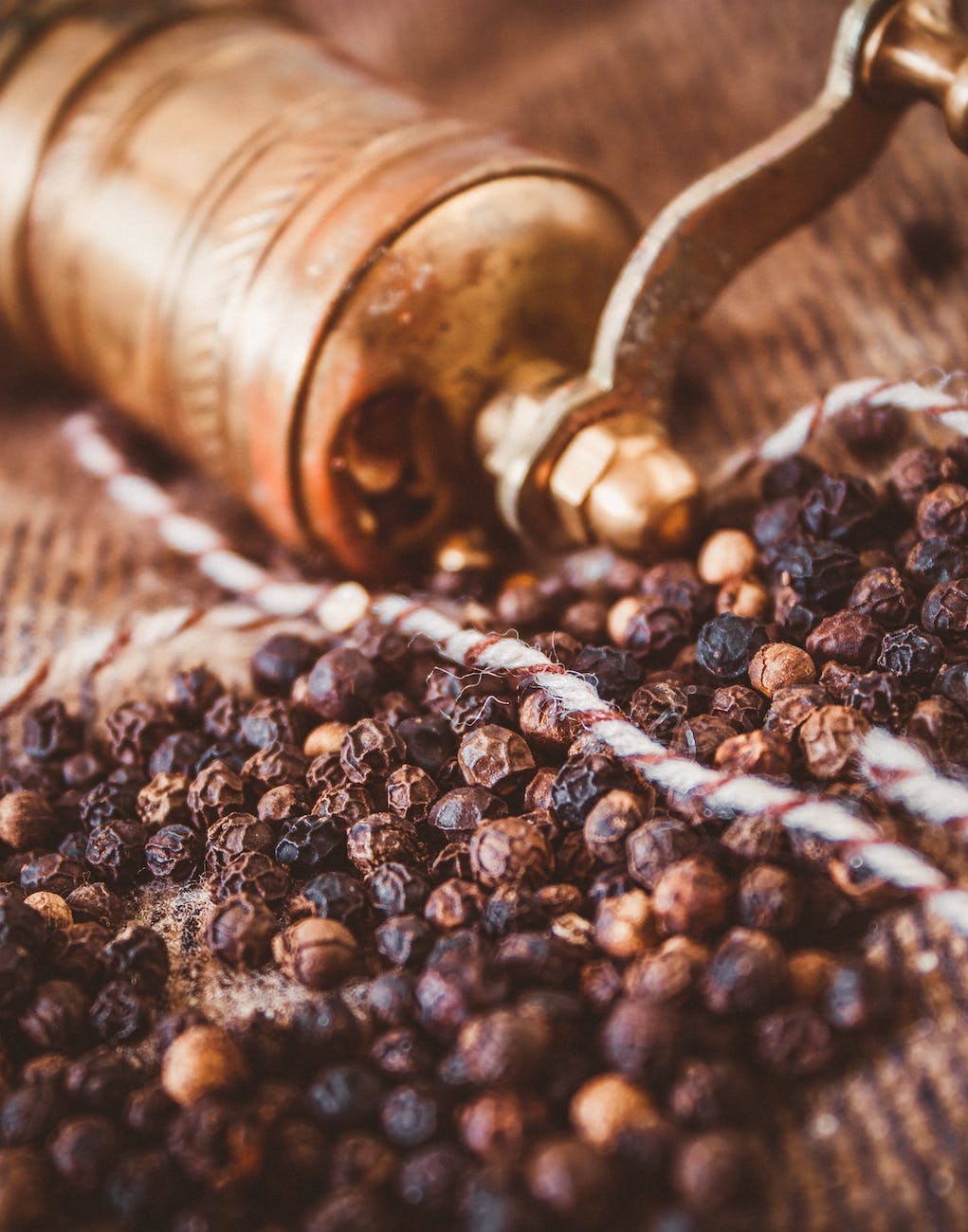
Black pepper, known scientifically as Piper nigrum, is more than just a kitchen staple. It’s a versatile spice with a rich history and a plethora of health benefits. This article delves into the uses, benefits, and some common misconceptions surrounding this aromatic spice.
Uses of Black Pepper:
- Culinary Uses:
- Black pepper is a staple in kitchens worldwide. It adds a spicy kick to dishes, enhancing the flavor profile of various cuisines.
- It’s used in its whole, cracked, or ground form to season meats, soups, and stews.
- Medicinal Uses:
- Traditional medicine systems like Ayurveda have long utilized black pepper for its therapeutic properties.
- It’s believed to aid digestion, relieve coughs, and improve skin health.
- Cosmetic Uses:
- Black pepper essential oil is sometimes added to skincare products for its potential anti-inflammatory and antioxidant properties.
- Aromatherapy:
- The essential oil derived from black pepper is used in aromatherapy for its warming and invigorating properties.
Benefits of Black Pepper:
- Digestive Health:
- Black pepper stimulates the production of digestive juices, aiding in the efficient breakdown of food.
- Skin Health:
- Some believe that black pepper can help treat vitiligo, a condition that causes skin to lose its pigment. Additionally, its anti-inflammatory properties can potentially reduce acne.
- Weight Management:
- The piperine in black pepper may prevent the formation of fat cells, aiding in weight loss.
- Rich in Antioxidants:
- Black pepper is a good source of antioxidants, which combat free radicals in the body, reducing oxidative stress.
- Enhances Nutrient Absorption:
- Consuming black pepper can enhance the absorption of essential nutrients like calcium and selenium.
- Thyroid and Immune System:
- Some studies suggest that black pepper can benefit thyroid function and boost the immune system.
- Respiratory Relief:
- Its anti-inflammatory properties can provide relief from sinusitis and nasal congestion.
Common Misconceptions:
- Is Black Pepper the Same as Chili Pepper?
- No, black pepper is milder and has a different flavor profile compared to chili pepper.
- Does Black Pepper Cause Acne?
- There’s no scientific evidence to suggest that black pepper directly causes acne. However, individual reactions can vary.
- Is Black Pepper Good for Ulcers?
- While black pepper can stimulate digestion, excessive consumption might irritate ulcers. It’s essential to consult with a healthcare professional.
Conclusion: Black pepper is a versatile spice with numerous health benefits. From aiding digestion to potentially boosting skin health, it’s more than just a flavor enhancer. However, as with all foods and supplements, moderation is key, and it’s essential to listen to one’s body and consult with healthcare professionals when necessary.
FAQs
- How does black pepper benefit the skin?
- Black pepper can potentially reduce acne due to its anti-inflammatory properties. Additionally, it might help treat vitiligo and improve complexion.
- Can I use black pepper essential oil directly on my skin?
- It’s recommended to dilute black pepper essential oil with a carrier oil before applying to the skin to prevent irritation.
- Why is black pepper added to some health supplements?
- The piperine in black pepper enhances the absorption of other nutrients, making supplements more effective.
- Is it safe to consume black pepper daily?
- Yes, when used as a seasoning in moderation. However, excessive consumption might lead to gastrointestinal issues.
- Can black pepper help with weight loss?
- The piperine in black pepper may prevent the formation of fat cells, but it’s essential to combine its consumption with a balanced diet and exercise.
Blog Tags: black pepper, Piper nigrum, culinary uses, medicinal benefits, skin health, antioxidants, weight management, nutrient absorption, thyroid health, respiratory relief, piperine, essential oil, aromatherapy, digestive health, anti-inflammatory properties.









[…] Also Read: 5 benefits of Black Pepper and How to Use It […]